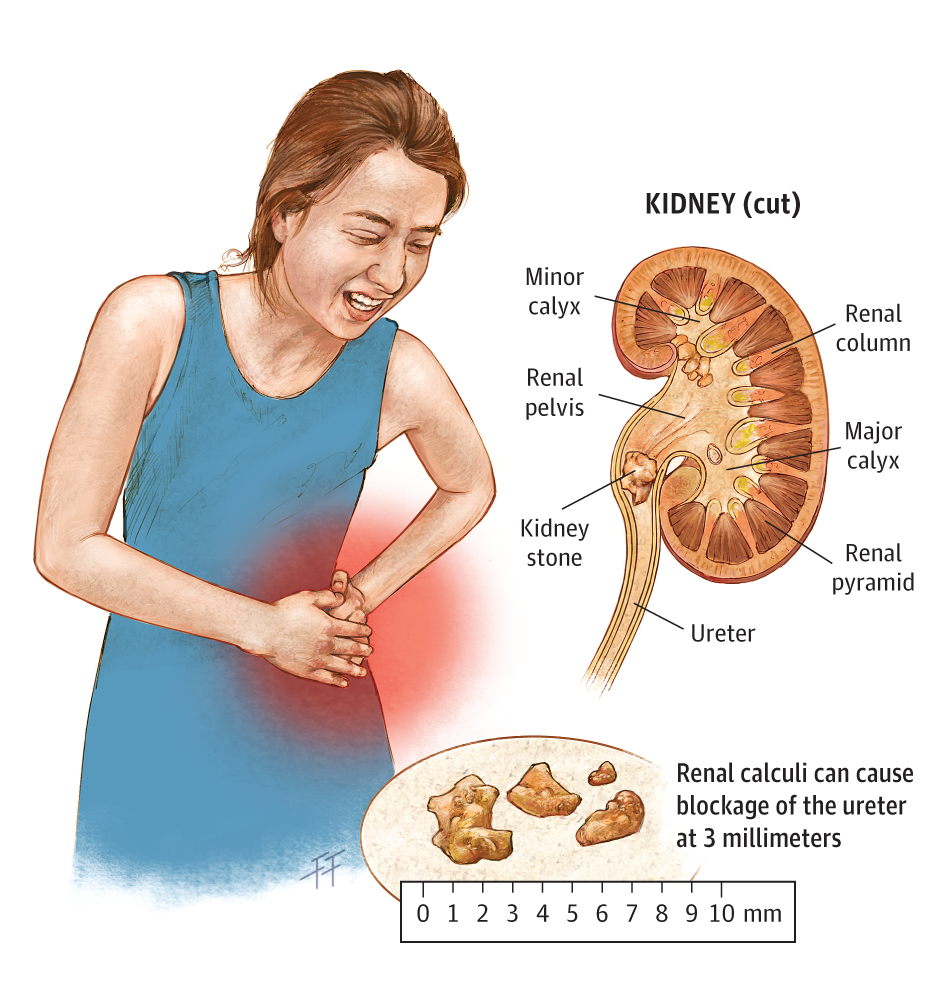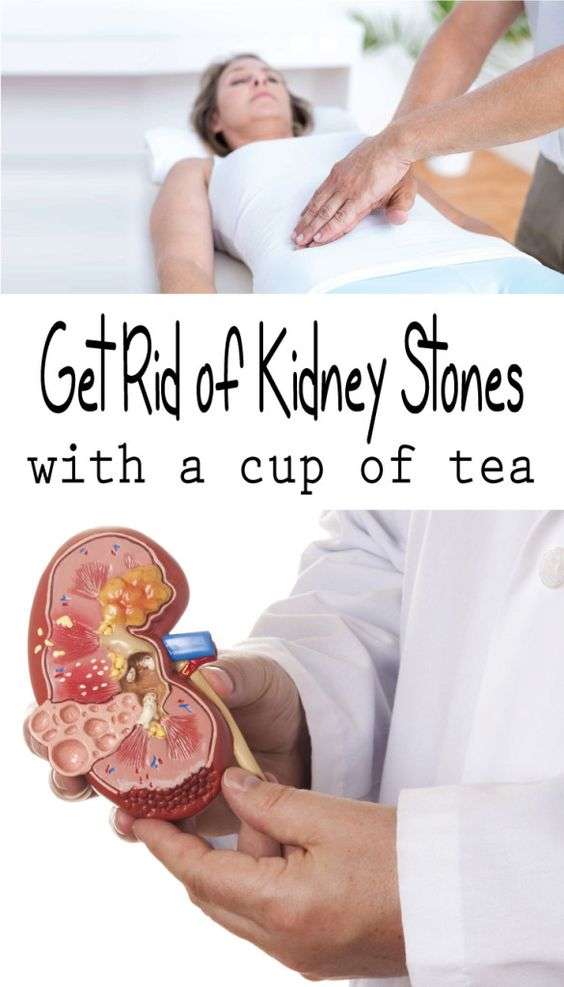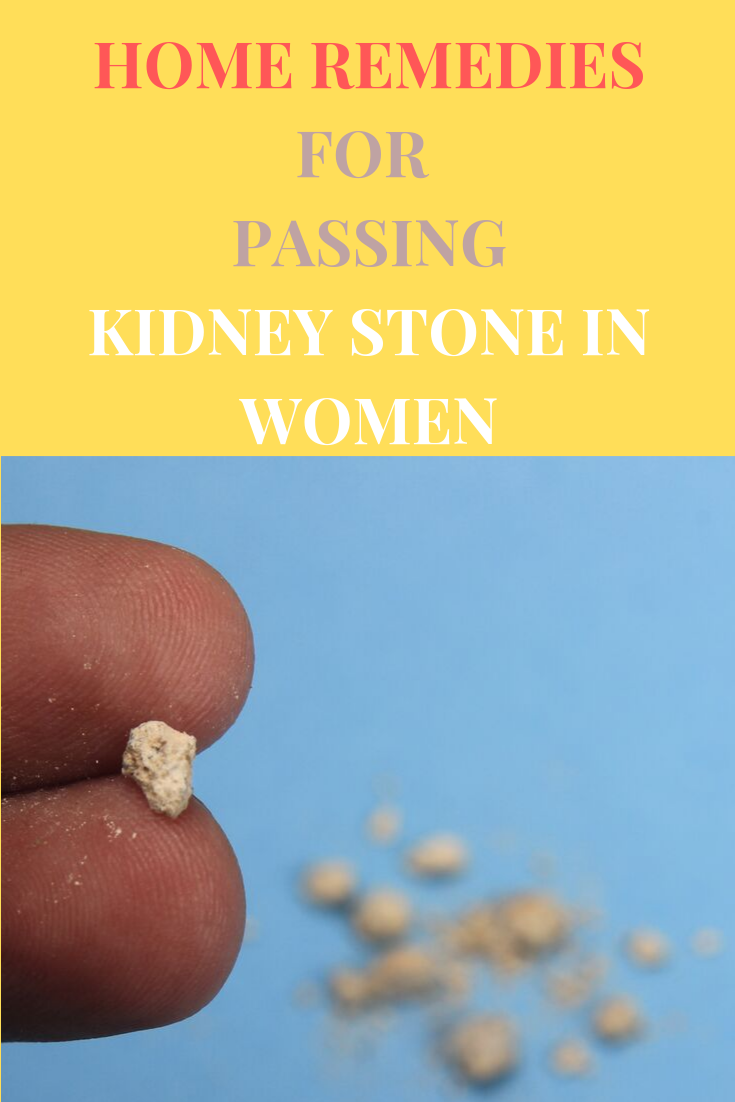Who Is Most Affected By Kidney Stones
Kidney stones aren’t new. Evidence of bladder stones was found in a seven thousand year old Egyptian mummy. Bladder stones were well-known in Hippocrates’ time in Ancient Greece. But kidney stones are becoming more common in the United States and more common in women. We used to think that kidney stones were a problem for middle aged men but now, they’re becoming more common in middle aged women and can also be a problem in pregnancy.
Once someone’s had one kidney stone, they have about a 50/50 chance of getting another. Ow! Kidney stones now affect about one in ten men in their lifetime and one in twelve women. There are different kinds of minerals in kidney stones but the most common are calcium containing stones. There are some diseases that are associated with kidney stones like gout or overactive parathyroid gland and others but the most common stones just happen.
How To Prevent Kidney Stones
While there is no way to completely rule out the chance of developing a kidney stone, there are steps that can be taken to decrease your odds. One of the most important preventative measures to kidney stones is to drink enough water each day at least 64 ounces is the recommended daily value by most healthcare providers.
Other tips include:
- Consume less sodium
- Consume less sugar
- Consume less animal protein
- Consume less oxalate-rich foods
- Avoid vitamin C supplements
Best practice for avoiding kidney stones centers around consuming enough daily purified water, maintaining a healthy weight, and basing a diet around vegetables, fruits, and other fibrous foods.
How Kidney Stones Affect Women
While womens overall lifetime risk is lower than mens, obesity, diabetes and associated metabolic syndromes have narrowed the gap, according to Dr. Robert Sweet, medical director of the Kidney Stone Center at UW Medical Center Northwest.
Plus, a recent epidemiological study spanning decades demonstrates that people who develop symptoms from kidney stones tend to be female, with the highest increase in incident rates between women ages 18 to 39. Women also had a higher frequency of infected stones as a result of recurrent urinary tract infections .
Womens risk of getting stones is greater than for men if they are obese, says Sweet. When women who have these other conditions have a kidney stone, they are also more likely to have complex stones that are more difficult to treat and have accompanying urinary tract infections and pain that reduces quality of life.
Also Check: Can Seltzer Water Cause Kidney Stones
How Are Kidney Stones Diagnosed
Your healthcare provider will discuss your medical history and possibly order some tests. These tests include:
- Imaging tests: An X-ray, CT scan and ultrasound will help your healthcare provider see the size, shape, location and number of your kidney stones. These tests help your provider decide what treatment you need.
- Blood test: A blood test will reveal how well your kidneys are functioning, check for infection and look for biochemical problems that may lead to kidney stones.
- Urine test: This test also looks for signs of infection and examines the levels of the substances that form kidney stones.
Can Kidney Stones Cause Cancer

Kidney stones are among the most complained health issues of people. These stones form in the kidneys due to excess of minerals crystallizing there. It happens due to unhealthy eating habits such as having too much oxalate, not having enough calcium and fluids, etc.
Though kidney stones are quite common and absolutely curable, they can increase the probability of cancer in some cases. Well, do not panic, it actually happens in just a few rare and severe cases.
Although sufficient evidence is not present, recent studies indicate that chronic and recurrent kidney stones can very often be associated with an increased risk of cancer in the urinary tract.
The following are some of the results and conclusions of a study conducted by some researchers from Maastricht University, The Netherlands.
Also Check: Std That Affects Kidneys
Things That Can Help You Take A Pass On Kidney Stones
- By Matthew Solan, Executive Editor, Harvard Men’s Health Watch
If youve ever passed a kidney stone, you probably would not wish it on your worst enemy, and youll do anything to avoid it again. “Kidney stones are more common in men than in women, and in about half of people who have had one, kidney stones strike again within 10 to 15 years without preventive measures,” says Dr. Brian Eisner, co-director of the Kidney Stone Program at Harvard-affiliated Massachusetts General Hospital.
What Factors Increase Women’s Risk Of Kidney Stones
Why is the incidence of kidney stones increasing in women? Well, the risk for stones include obesity, high-salt diet, increased sugar in the diet, and diabetes. All these risks have increased for women over the past 30 years. Some recent studies looked at the risks for kidney stones in women. 82,000 post-menopausal women were followed in the women’s health initiative study. Women who didn’t get stones had the highest intake of fiber, fruits and vegetables and lower sugar intake.
Unfortunately, women who’ve already had stones didn’t seem to lower their risk of getting them by having a diet high in fiber, fruits and vegetables. So once you’re a stone former you’re kind of stuck, or the stone is stuck. Another study of many thousands of women showed that a diet high in calcium was a little bit of a risk but taking calcium supplements wasn’t.
You May Like: Is Grape Juice Good For Kidney Stones
Increased Risk Of Upper Tract Urothelial Carcinoma
Upper tract urothelial carcinoma refers to cancers in the lining of the kidney or the ureter. Just like other types of cancer, it can also spread to other body organs. Upper tract urothelial carcinoma puts you at the risk of losing your kidney or ureter and in severe cases, it may lead to death as well.
Data from the same study has revealed that kidney stones are associated with a 1.7 fold increase in the risk of upper tract urothelial cancers.
Can Kidney Stones Cause Uti
Kidney stones can cause UTI. Kidney stones of metabolic origin can cause obstruction in the ureter and lead to the development of urinary tract infection . This relationship between urinary stones and UTI is well known and is mentioned in the medical literature as :
- kidney stones that develop following UTI.
- kidney stones that get complicated by UTI.
In other words, kidney stones can increase the risk of UTI, or making an existing UTI become worse.
Don’t Miss: Does Red Wine Cause Kidney Stones
What Are The Common Causes
These stones can be the result of:
- Family history: you are more likely to get these stones if someone else in your family has dealt with them
- Personal history: if youve had kidney stones before, it increases the risk of getting them in the future
- Dehydration: resulting from not drinking enough water, excessive sweat, or a dry climate
- Obesity: being overweight is linked with higher risk of kidney stones
- Diets: if youre eating lots of salt, protein and sugar, youre raising your risk of these stones
- Medications: vitamin C, dietary supplements, excessive use of laxatives, and some drugs for migraines and depression can raise your chances of this condition
- Medical conditions: inflammatory bowel disease and chronic diarrhea can affect the way you absorb calcium and water, increasing your risk
These risk factors may lead too little liquid and too much waste. As a result, rather than passing waste substances in your urine, minerals and salts, waste materials you normally pass when you use the bathroom, may clump together and form crystals.
Tips To Avoid Kidney Stones
- Drink plenty of fluid, especially water. This is the most important thing you can do to lower your risk of getting another kidney stone. Aim for at least 2 ½ liters to 3 liters of fluid each day. People with cystine stones may want to aim for 4 liters .
- It may be helpful to limit animal protein, including meat, fish, seafood, poultry, and eggs.
- Eat calcium-rich foods instead of taking supplements.
- If you want to take a vitamin C supplement, make sure you take less than 1000 milligrams per day. High amounts of vitamin C may increase your risk of stones.
You May Like: Does Chocolate Cause Kidney Stones
What Can Be Done For Kidney Stones
When it comes to kidney stone treatment, it is always best to consult your doctor. Identifying what causes kidney stone in your body and the types of kidney stones you may have may affect the treatment approach you need to dissolve the stones, and also to prevent kidney stones. Common treatment for kidney stones may include pain management with pain relief medication, medicine to break up kidney stones, and ESWL also known as extracorporeal shock wave lithotripsy. Other more complicated cases of kidney stones may require surgery.
Whats The Outlook For Kidney Stones

The outlook for kidney stones is very positive, although there is a risk of recurrence . Many kidney stones pass on their own over time without needing treatment. Medications and surgical treatments to remove larger kidney stones are generally very successful and involve little recovery time.
Its possible to get kidney stones multiple times throughout your life. If you keep developing kidney stones, your healthcare provider may work with you to discover why the stones happen. Once the cause is found, you may be able to make dietary changes to prevent future stones.
Also Check: Seltzer Kidney Stones
Blocked Ureter And Kidney Infection
A kidney stone that blocks the ureter can lead to a kidney infection. This is because waste products are unable to pass the blockage, which may cause a build-up of bacteria.
The symptoms of a kidney infection are similar to symptoms of kidney stones, but may also include:
- a high temperature of 38C or over
- chills and shivering
Kidney stones are usually formed following a build-up of certain chemicals in the body.
This build-up may be any of the following:
- calcium
- ammonia
- uric acid a waste product produced when the body breaks down food to use as energy
- cysteine an amino acid that helps to build protein
Certain medical conditions can lead to an unusually high level of these substances in your urine.
You’re also more likely to develop kidney stones if you don’t drink enough fluids.
Drink More Water People
The best way to prevent kidney stones is simple: Drink a lot of water. People with low urine output tend to be more prone to developing stones.
Kidney stones are formed by small pieces of minerals, like calcium, building up in your kidneys as your kidneys filter waste from your blood. If you stay hydrated, theres less of an opportunity for those minerals to build up and chunk together.
You know youre drinking enough water if your pee is pale yellow or clear. Still, its easy to forget to hydrate.
Thats why Harper and Wessells are conducting a study to see if using smart water bottles that track someones fluid intake can help prevent kidney stones. The bottles send data about how much someone is drinking to an app, which then alerts the participant if they need to drink more.
Being reminded is helpful because even people who have had kidney stones tend to slip up when it comes to hydration, Wessells says.
They do it for a while but then they go back to the way they were. The kidney stone becomes a distant memory, he says.
But just because the memory may fade doesnt mean the costsfinancial and otherwisedo. Kidney stones usually cause people to miss several days of work at least, and the financial burden of emergency department visits and CT scans is high, says Wessells.
Its important for people to understand what their barriers are to fluid intake so we can help them remove those barriers and develop strategies to take in more fluid regularly, he says.
Recommended Reading: Carbonated Water Kidney Stones
How Do You Dissolve Kidney Stones And Get Them To Pass
So you have one or more kidney stones lodged in the kidney and want to dissolve and flush them out fast? Youll need a higher dose than the normal maintenance dosing. Many sufferers find they can fix the problem with pure chanca piedra and water.
Heres how to dissolve kidney stones:
The name, Chanca Piedra itself translates literally to Stone Breaker. Scientists and doctors globally have praised the use of this herbal remedy in the treatment of kidney stones. The analgesic compounds in lab grade Chanca Piedra help ease pain while passing stones and reduce those stones in size so the particles can pass through your urine stream easily. In addition, lab grade Chanca Piedra acts as a defense system, so to speak, to reduce reoccurrence of kidney stones. This effect is due to the herbal remedys reduction of the very minerals that build in up in the kidneys to produce kidney stones excess oxalate, phosphorous, and magnesium. You could spend days drinking olive oil, lemon juice, apple cider vinegar, large amounts of Coke, and asparagus puree, with limited success, if any. We find far superior and consistent results from kidney stone sufferers who took lab grade Chanca Piedra, and the science backs those real world findings.
Symptoms Of Kidney Stones
Many people with kidney stones have no symptoms. However, some people do get symptoms, which may include:
- a gripping pain in the back usually just below the ribs on one side, radiating around to the front and sometimes towards the groin. The pain may be severe enough to cause nausea and vomiting
- blood in the urine
- cloudy or bad smelling urine
- shivers, sweating and fever if the urine becomes infected
- small stones, like gravel, passing out in the urine, often caused by uric acid stones
- an urgent feeling of needing to urinate, due to a stone at the bladder outlet.
Also Check: Almonds And Kidney Disease
How Big Are Kidney Stones How Can They Be Removed
Have you ever wondered how big are kidney stones? Stones of > 5mm size are considered as large kidney stones.
Large-sized stones cannot pass through the kidneys without any medical intervention. If they are left to pass on their own, they may take longer time, about a year or more than that and there is a risk of complications. Large sized stones may get struck in the urinary tract and cause extreme pain and bleeding during urination.
The methods involved in the removal of large-sized kidney stones are as follows:
Foul Smelling Or Cloudy Urine
The presence of stones in your kidneys makes your urine more concentrated. The kidney stones are caused due to crystallization of concentrated minerals and make the urine cloudier, stinky, and darker. The strong or foul smell is often compared with ammonia, but it may be due to a urinary infection rather than just a kidney stone.
Also Check: Ginger Benefits For Kidneys
How Are Children Treated For Kidney Stones
Most childrens kidney stones can be treated with the shock wave lithotripsy , a completely non-invasive procedure. Your child is placed under anesthesia and sound waves of specific frequencies are focused on the stones to shatter them into fragments small enough to be easily passed during urination.
How Do Kidney Stones Form

Our kidneys are tasked with the responsibility of filtering toxins, waste, and excess fluid from the blood to form urine.
When the kidneys contain an excess of certain types of chemicals, such as uric acid, phosphorous, calcium, and oxalic acid, and not enough fluid to dilute them, these minerals and waste substances get concentrated enough to form crystals.
Your kidneys may simultaneously run low on certain substances that prevent these crystals from sticking together.
As a result, these clumps of waste material gradually grow in size to acquire the form of kidney stones.
The smaller stones are usually excreted without any medical intervention, rarely presenting any noticeable pain or symptoms. The larger ones, however, can get jammed in the narrow ureter and obstruct the natural flow of urine.
Given that your urinary tract is custom made for the passage of liquid matter, the expulsion of these solid rock-like masses can be mind-numbingly painful.
Recommended Reading: Is Almond Milk Bad For Your Kidneys
Kidney Stones In The Elderly
Kidney stones are as painful as they sound.
Anyone who has been through the experience of having kidney stones will confirm this.
One of the things we strive to do here on the blog is to educate you on common healthcare problems you can expect to encounter as a caregiver and how you can offer your assistance when these problems arise.
- What kidney stones are and symptoms
- The kind of medical care you can expect for kidney stones in the elderly
- What complications can arise from kidney stones
- The kind of support you can provide your elderly loved one during an episode with kidney stones
Medication For Kidney Stones
For most people with recurrent calcium stones, a combination of drinking enough fluids, avoiding urinary infections, and specific treatment with medications will significantly reduce or stop new stone formation.
Certain medications such as thiazide diuretics or indapamide reduce calcium excretion and decrease the chance of another calcium stone. Potassium citrate or citric juices are used to supplement thiazide treatment and are used by themselves for some conditions where the urine is too acidic.
For people who have a high level of uric acid in their urine, or who make uric acid stones, the medication allopurinol will usually stop the formation of new stones.
Recommended Reading: Are Almonds Bad For Kidneys